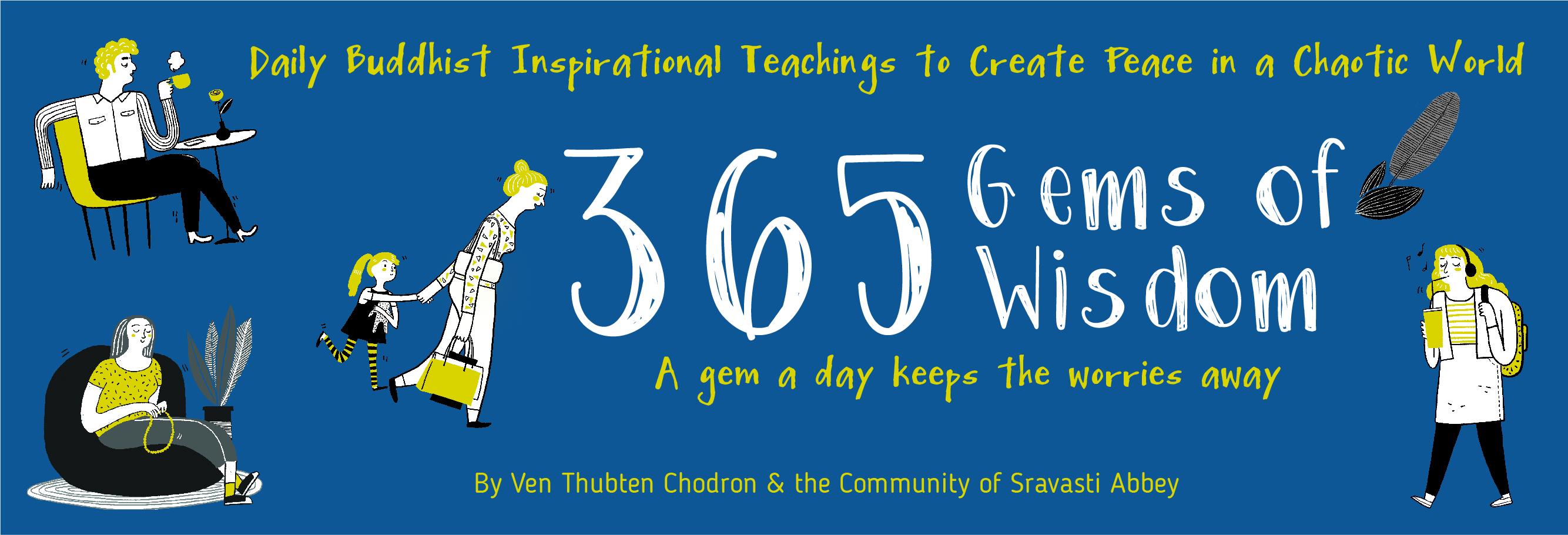September 12 : Heart Advice for Practitioners
Have a long-term view. Be content to create the causes in your practice by following the teachings and stop waiting for grandiose flashes of insight to occur and for instances of samadhi that you can go tell everyone you have had. Just be content to do your practice. Study, because studying is important. If we do not study, we do not know how to meditate, we do not know what the Dharma is. We wind up making up our path, and that is dangerous. It is important to study not only the sutras but from the great commentators and the learned masters.
Have a good motivation for our practice. Make cultivating motivations a chief focus. If we have a good motivation of wanting to achieve liberation, wanting to work for sentient beings, and to attain full awakening, then that long-term motivation will sustain us through the ups and downs of practice. If our motivation in the back of our mind is to have peak experiences or to become a Dharma teacher or something like that, that motivation will not sustain our practice and it also contaminates our practice with worldly gain and wanting to be somebody. “I am practicing so that I can be a Dharma teacher, then I will have a career.” Dharma is not a career. Dharma is our life.
Remember the kindness of others all the time, and really make that a chief meditation. This helps the mind so much, reflecting on the kindness of others. It makes relationships with others easier, reduces anger, reduces competition, and reduces jealousy. Thinking of the kindness of others brings much contentment to the mind. Not only the kindness of parents, teachers and friends, but the kindness of strangers and the kindness of people who harm us as well.
When you ask others for guidance, listen to the guidance they give you. But think for yourself. When others ask you for help in the Dharma, really listen to them before saying something. Try to hear when people ask you questions, what their real question is, what their real concern is, and address that.
Differentiate between what is Dharma and what is religious institutions. A religious institution is something formed by human beings, so religious institutions are going to have difficulties and so on. I see our job as going deep in our refuge and deep in our practice. Having as much of a religious institution as is necessary is only to encourage practice. In other words, our purpose is not to create, reinforce and be a team member of a religious institution, our aim is inner transformation. Do not confuse the two things. If your refuge is in the institution, and when the institution has a problem, your refuge gets shaky. But if your refuge is in the Buddha, Dharma, and Sangha, then you know that even when the institution has problems, you can bring compassion and wisdom to those problems without letting those problems discourage or cause you to lose faith in anything.
“365 Gems of Wisdom” e-book is out now!

